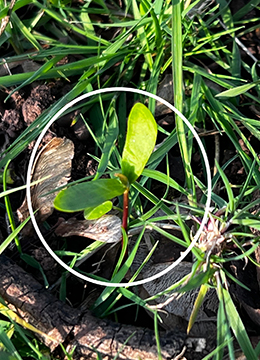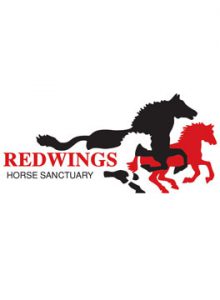 Article courtesy of Professor Meriel Moore-Colyer BSc (Hons), PhD, RAnimSci, BHSII of Equine Nutrition Research and Consultancy.
Article courtesy of Professor Meriel Moore-Colyer BSc (Hons), PhD, RAnimSci, BHSII of Equine Nutrition Research and Consultancy.
Management suggestions
Atypical myopathy in horses is particularly prevalent in autumn and spring and is a result of consumption of sycamore (Acer pseudoplantus) seeds and saplings. In the autumn the seeds fall onto the pasture and are readily eaten by horses, particularly if grass is in short supply. Seed-spread can be wide as the ‘helicopter’ shape allows them to float quite a distance in the wind, so a large area of your paddock could be contaminated with seeds. In the spring the seeds that have fallen in the autumn produce saplings, and there can be copious amounts of these, which your horse will eat if grass is not readily available. Atypical myopathy is to be avoided at all costs, so here are a few management tips to help you deal with sycamore seeds and saplings.
Immediate actions
- Restrict time at pasture to less tan 6 hours, this should avoid ‘gorging’ on the seeds and saplings
- If grass is in short supply feed some additional forage at pasture
- Fence-off the contaminated area with electric fencing
- Move horses to another paddock
Short-term management
– seeds and saplings must be removed from the paddock
- In autumn rake-up or use a lawn-mower to pick up the seeds. Do not dispose of them on the muck heap as dead seeds are also poisonous. A muck-collector / grass collection box, particularly those with rotating brushes should also lift the seeds as long as the grass is not too long.
- Effective removal of seeds in the autumn should minimise the growth of saplings in the spring
- In spring saplings should be removed completely from the paddock. Small numbers of saplings can be pulled by hand. Remember not to leave the pulled plants on the pasture as even dead saplings contain toxic amounts of HGA. Larger areas can be cleaned-up using a lawn mower. If the seed has spread more extensively across the paddock then a forage harvester is the best way to remove the saplings from the site.
Using chemical sprays to kill saplings
- Spot-spraying using a nap-sac sprayer with SBK Brushwood killer will kill the saplings. Larger areas are best tackled with a tractor-mounted sprayer. If you have NPTC sprayer qualifications then Grazon Pro and Doxstar are very effective. Some chemicals work best in combination with others e.g., Envy and Grazon; dose rates will be supplied by the manufacturer. Spraying should be done when the saplings are actively growing.
- Once the saplings have died they must be removed from the paddock.
- Post-spraying the pasture should be left for 6 weeks before stock are returned (provided saplings have been lifted). While the grass will be safe after 6 weeks, if the dead saplings are still on the pasture you still have the potential problem of toxicity.
Long-term management
- Remove Sycamore trees from around the paddocks. Sycamore is not a native tree to UK so re-planting with native tree species would be best. Please note the following trees are also potentially poisonous: Oak (acorns) Red Maple (leaves); Boxelder (seeds and seedlings); Horse Chestnut (fruit, when consumption is high); Cherry tree (seeds and leaves)
- Pasture contaminated with sycamore saplings should not be used for forage conservation. Toxin levels in grass contaminated with saplings has dangerous levels of HGA, even after 8 months of storage.



 Did you know that antimicrobial resistance (AMR) is a world-wide health threat, as bacteria are becoming resistant to many antibiotics that we use in human and veterinary medicine?
Did you know that antimicrobial resistance (AMR) is a world-wide health threat, as bacteria are becoming resistant to many antibiotics that we use in human and veterinary medicine?
 Colleagues across our practices have this year voted the CVS equine charity of the year as Redwings Horse Sanctuary, the UK’s largest horse sanctuary charity.
Colleagues across our practices have this year voted the CVS equine charity of the year as Redwings Horse Sanctuary, the UK’s largest horse sanctuary charity.
